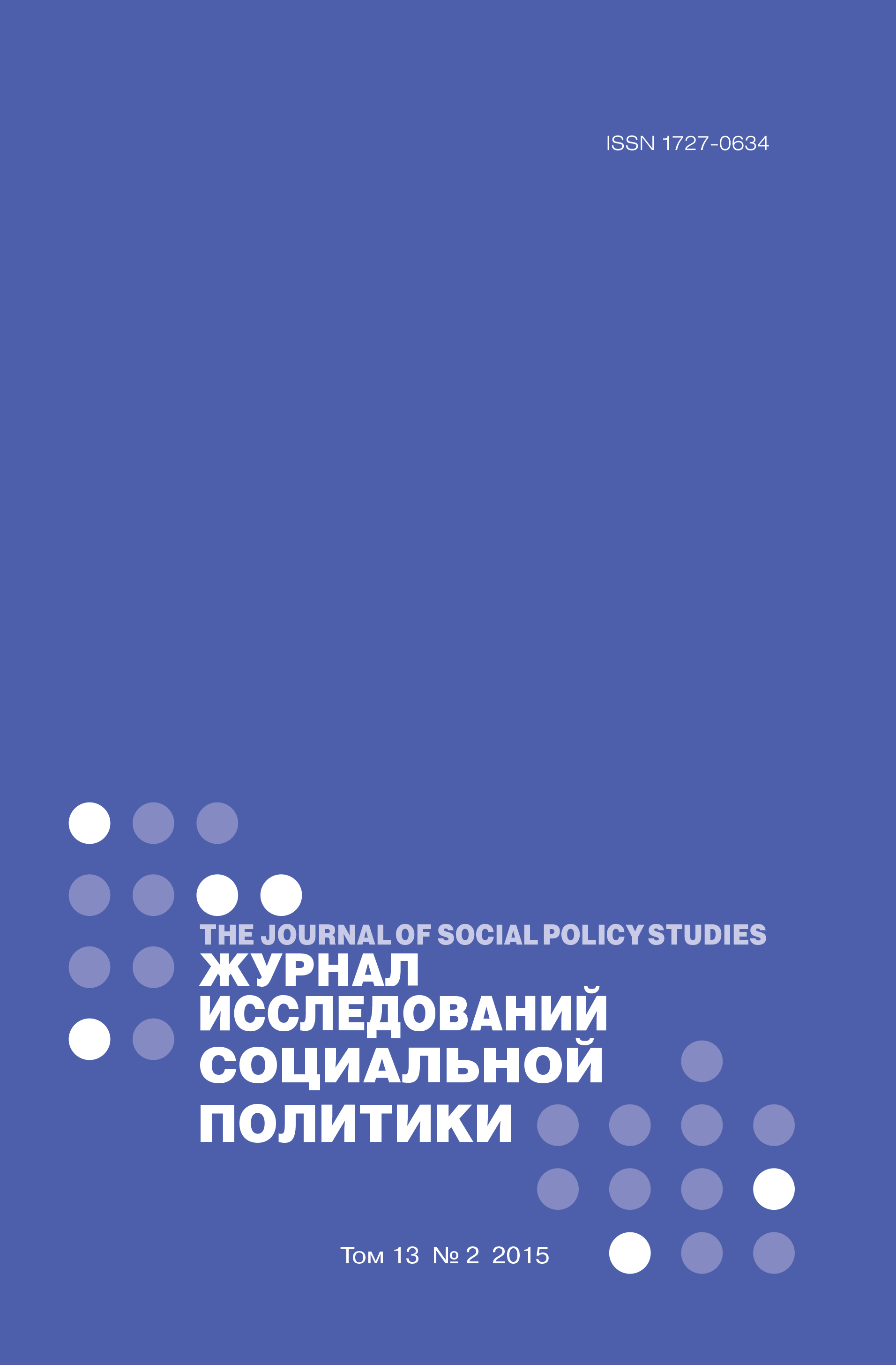Inequalities in Eligibility for Social Care: an International Context
Keywords:
social care, welfare state regimes, eligibility, citizen rights
Abstract
The issue of eligibility in social care systems has been the subject of extensive scholarly discussions and political debate. This article seeks to advance discussion regarding the modern turn to neoliberal policies and the marketisation of social services all over world. This is achieved by offering a framework that can examine how these changes affect eligibility issues and produce larger inequality. The usefulness of the framework will then be explored by considering examples from country case studies with different welfare regimes that are influenced by local histories and practices (England, Finland and Russia). Eligibility issues are of interest as they can clearly highlight differences in varying regimes of social welfare. While the social-democratic regime is built on the basis of maximum eligibility for social services, the neoliberal regime is based on effectively addressing the demand for social services. Different actors are interested in different schemes of eligibility. On the one hand, citizens are interested in broader eligibility. On the other hand, businessseeks to reduce the tax burden as much as possible. The state stands between these two powerful actors, and is motivated by the somewhat conflicting desires to reduce public spending while simultaneously bolstering its legitimacy and retaining the support of the electorate. The process of liberalisation, like any other process, occurs in waves and can be reflected in eligibility issues in different countries. Our analysis shows continuity in all three countries examined, with recent reform having led to budget savings, but also to an increased gap between the more and less wealthy consumers of social services. This applies to those countries with socio-democratic traditions, such as Finland now, and Russia in the past, and to those with liberal traditions, such as the UK,. The commodification of care has become a barrier to increasing both its quality and its availability. Consequently, it is possible to speak about an increase of inequality in eligibility for social care in England, Finland and Russia.Downloads
Download data is not yet available.
Published
2015-06-30
How to Cite
ГригорьеваИ. А., ПервоваИ. Л., & СмирноваА. Н. (2015). Inequalities in Eligibility for Social Care: an International Context. The Journal of Social Policy Studies, 13(2), 317-330. Retrieved from https://jsps.hse.ru/article/view/3323
Section
ARTICLES IN ENGLISH















